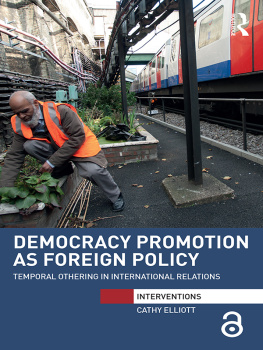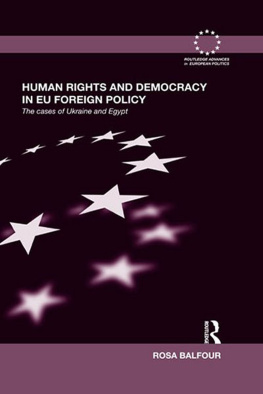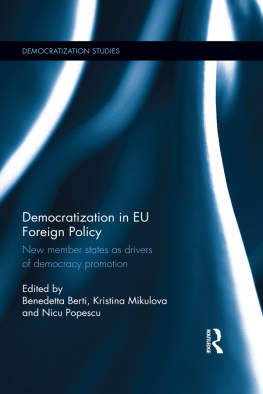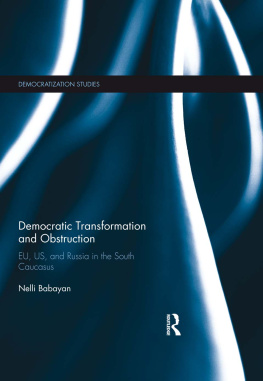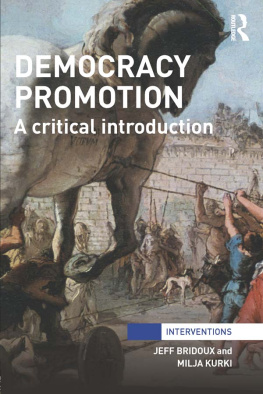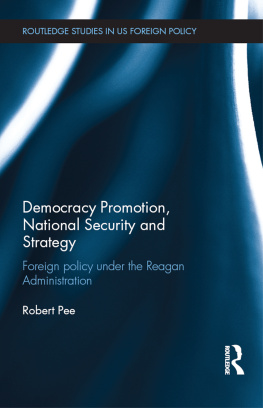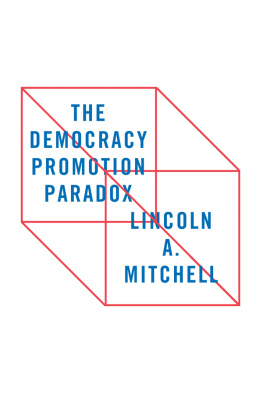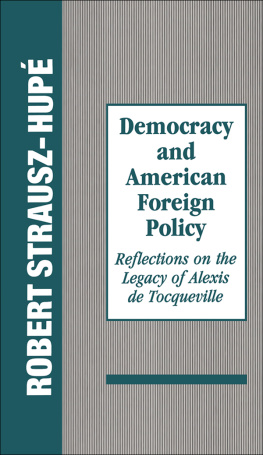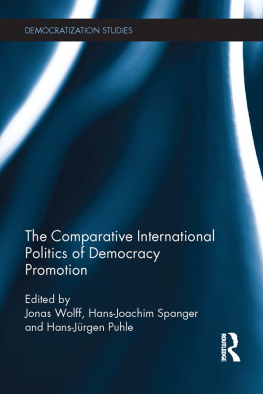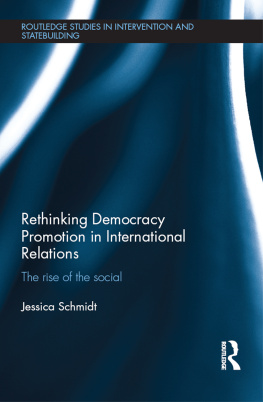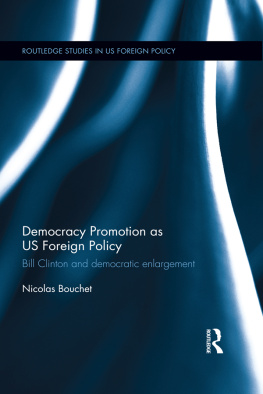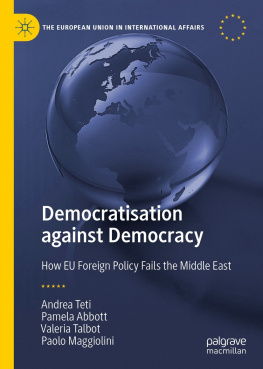Democracy Promotion as Foreign Policy
This book looks at democracy promotion as a form of foreign policy. Elliott asks why democracy was seen to be the answer to the 7/7 bombings in London, and why it should be promoted not in Britain, but in Pakistan. The book provides a detailed answer to these questions, examining the logic and the modes of thinking that made such a response possible through analysis of the stories we tell about ourselves: stories about time, history, development, civilisation and the ineluctable spread of democracy.
Elliott argues that these narratives have become a key tool in enabling practices that differentiate selves from others, friends from enemies, the domestic from the foreign, civilisation from the barbarian. They operate with a particular conception of time and constitute a British, democratic, national identity by positing an other that is barbaric, alien, despotic, violent and backward. Such understandings are useful in the wake of disaster, because they leave us with something to do: danger can be managed by bringing certain people and places up-to-date. However, this book shows that there are other stories to be told, and that it is possible to read stories about history against the grain, and author alternative, less oppressive versions.
Providing a genealogy drawing on material from colonial and postcolonial Britain and Pakistan, including legislation, political discourse, popular culture and government projects, this book will be of interest to scholars and students focusing on democracy promotion, genealogy, critical border studies, poststructural international relations, postcolonial politics, discourse analysis, identity/subjectivity, and the war on terror.
Cathy Elliott is a Senior Teaching Fellow at the School of Public Policy, University College London. She previously worked as a development manager in Pakistan. Her research interests include poststructural international relations; time, temporality and history; politics and aesthetics; and feminism and gender.
Interventions
Edited by: Jenny Edkins, Aberystwyth University and Nick Vaughan-Williams, University of Warwick
The Series provides a forum for innovative and interdisciplinary work that engages with alternative critical, post-structural, feminist, postcolonial, psychoanalytic and cultural approaches to international relations and global politics. In our first 5 years we have published 60 volumes.
We aim to advance understanding of the key areas in which scholars working within broad critical post-structural traditions have chosen to make their interventions, and to present innovative analyses of important topics. Titles in the series engage with critical thinkers in philosophy, sociology, politics and other disciplines and provide situated historical, empirical and textual studies in international politics.
For a full list of available titles please visit https://www.routledge.com/series/INT.
The most recent titles in this series are:
Refugees in Extended Exile
Living on the edge
Jennifer Hyndman and Wenona Giles
Security Without Weapons
Rethinking violence, nonviolent actions, and civilian protection
M. S. Wallace
Disorienting Democracy
Politics of emancipation
Clare Woodford
Democracy Promotion as Foreign Policy
Temporal othering in International Relations
Cathy Elliott
Asylum Seekers, Sovereignty, and the Senses of the International
A politico-corporeal struggle
Eeva Puumala
Global Powers of Horror
Security, politics, and the body in pieces
Franois Debrix
First published 2017
by Routledge
2 Park Square, Milton Park, Abingdon, Oxon OX14 4RN
and by Routledge
711 Third Avenue, New York, NY 10017
Routledge is an imprint of the Taylor & Francis Group, an informa business
2017 Cathy Elliott
The right of Cathy Elliott to be identified as author of this work has been asserted by her in accordance with sections 77 and 78 of the Copyright, Designs and Patents Act 1988.
The Open Access version of this book, available at www.taylorfrancis.com, has been made available under a Creative Commons Attribution-Non Commercial-No Derivatives 4.0 license
Trademark notice: Product or corporate names may be trademarks or registered trademarks, and are used only for identification and explanation without intent to infringe.
British Library Cataloguing in Publication Data
A catalogue record for this book is available from the British Library
Library of Congress Cataloging in Publication Data
Names: Elliott, Cathy
Title: Democracy promotion as foreign policy : temporal othering in international relations / by Cathy Elliott.
Description: Milton Park, Abingdon, Oxon ; New York, NY : Routledge, 2017. | Includes bibliographical references and index.
Identifiers: LCCN 2016037848| ISBN 9781138669727 (hardback) | ISBN 9781315618050 (ebook)
Subjects: LCSH: DemocratizationInternational cooperation. | Democracy. | international relations.
Classification: LCC JC423 .E385 2017 | DDC 327.1/1dc23
LC record available at https://lccn.loc.gov/2016037848
ISBN: 978-1-138-66972-7 (hbk)
ISBN: 978-1-31561-805-0 (ebk)
On Friday 13 November 2015, we tragically saw yet another co-ordinated terrorist attack in a European capital city. Gunmen and suicide bombers in Paris attacked a rock concert, a sports stadium, and various bars and restaurants, killing 130 people and injuring many more (BBC, 2015a). A two-minute monologue by BBC TV political affairs presenter Andrew Neil condemning the attacks subsequently went viral on social media. It was later translated into French and made freely available on the BBC website in both languages (BBC, 2015b). This intervention summed up common discursive responses to such terrible events. The attackers, says Neil, are more in a long historical line of fascists, Nazis and Stalinists who have attacked Europe and democracy before. He proposes that France is a symbol of civilisation and cites as evidence a long list of distinguished French citizens. This is mainly a roll call of dead white men including Sartre and Camus but not Simone de Beauvoir though Juliette Binoche, Zinedine Zidane and the pop group Daft Punk do get a mention after coq au vin and before crme brle. He also refers to Frances modern, up-to-date, progressive credentials: cutting-edge science, modern medicine, fearsome security forces and nuclear power. The attackers, meanwhile, are associated with a death cult barbarity and medieval squalor that would shame the Middle Ages. The future, he suggested, would be won by democracy and leave the terrorists as dust. This temporal narrative, casting terrorists as back in the past and industrialised, postcoloniser, liberal democratic countries like Britain and France as on an inexorable and unbroken march towards an ever more civilised future is very familiar and we will encounter it many times in the forthcoming pages. It does not seem to be a discourse that is going away.
This book begins from the premise that identity is only possible as a function of difference. If someone is British, that is because they are not French or American or Pakistani and so on. This account of identity tells us very little, however, unless we flesh out the concrete empirical detail of the identities individual subjects have by virtue of what they are not: what matters is not the fact of these divisions but

